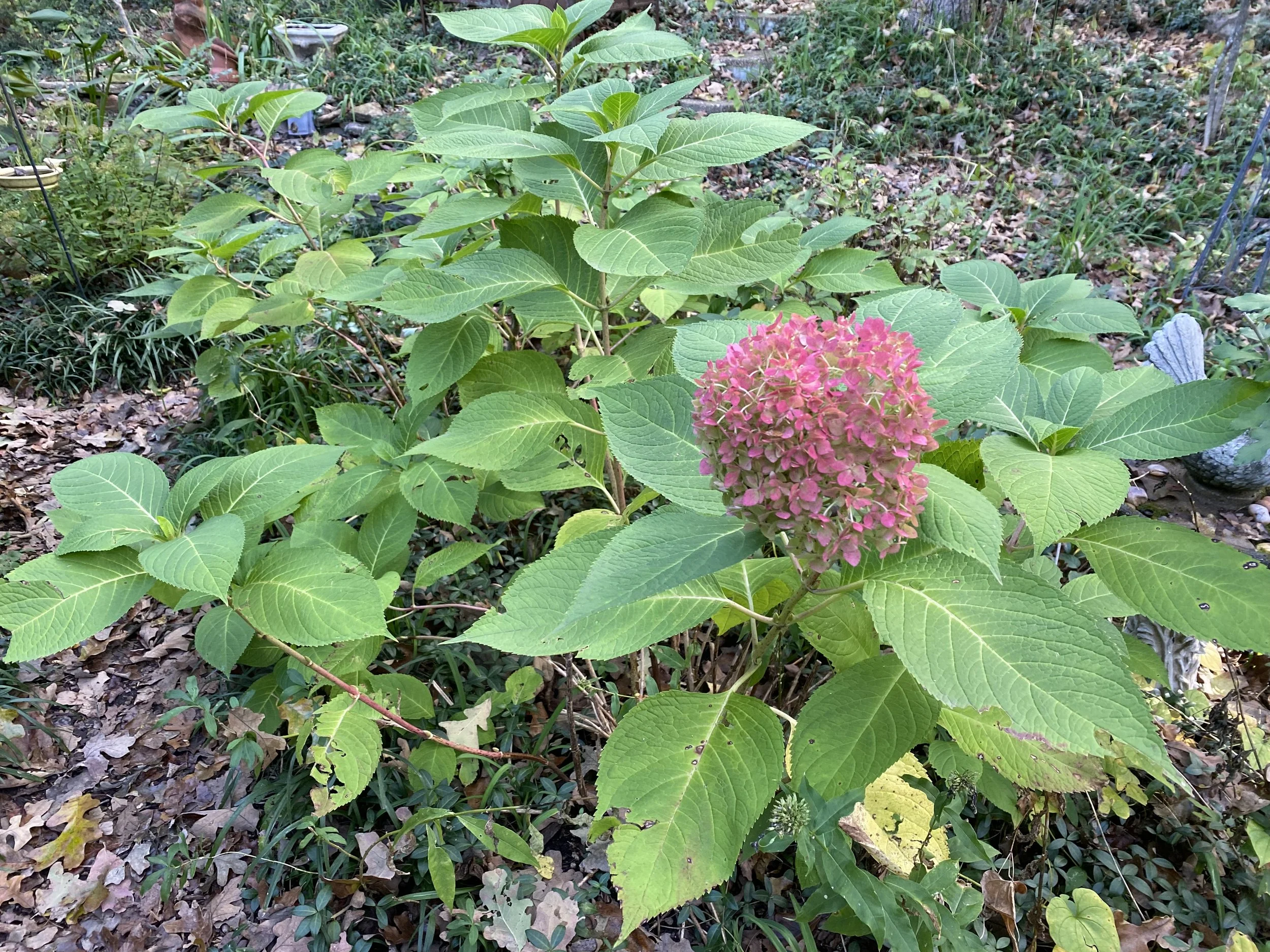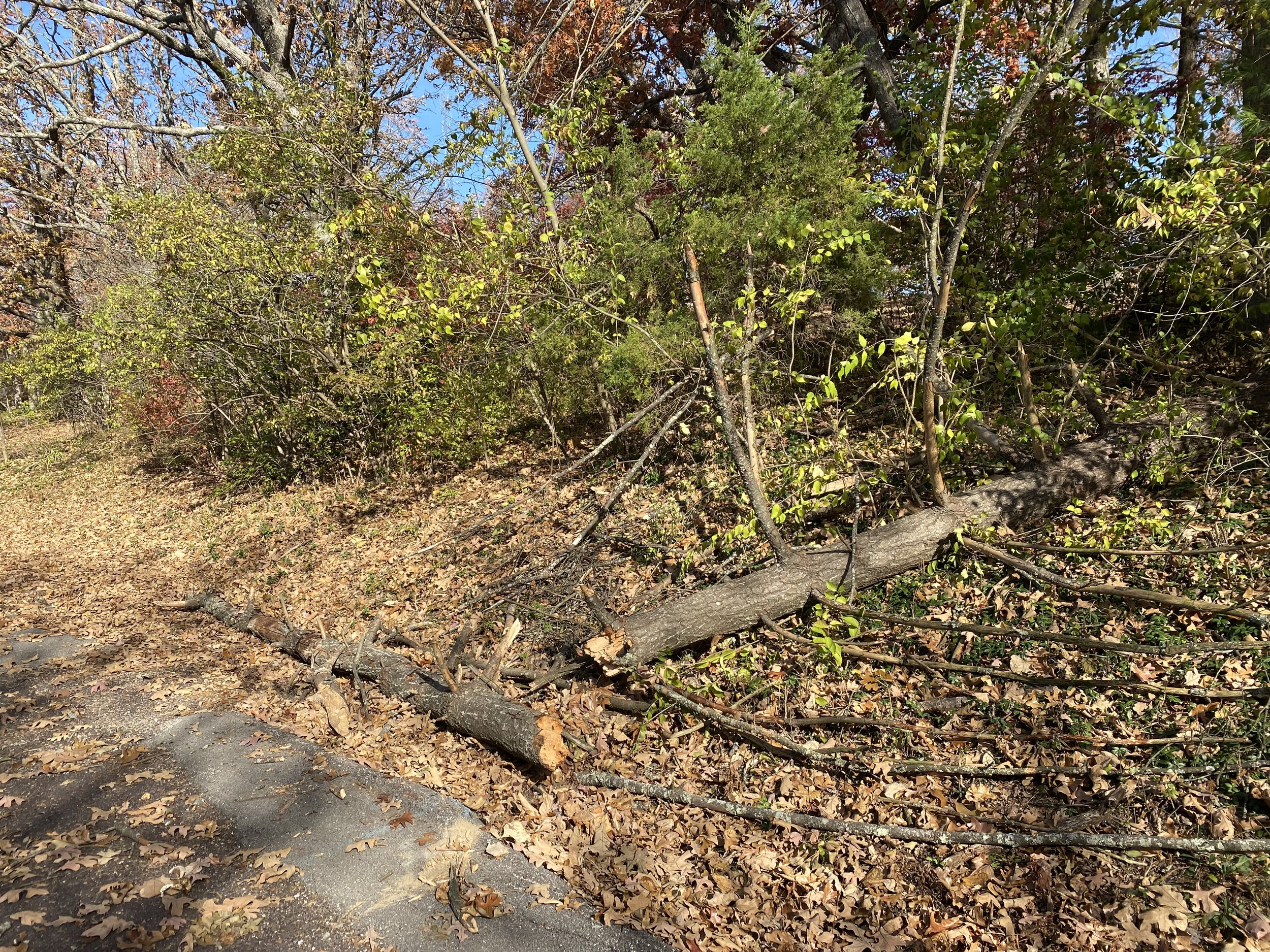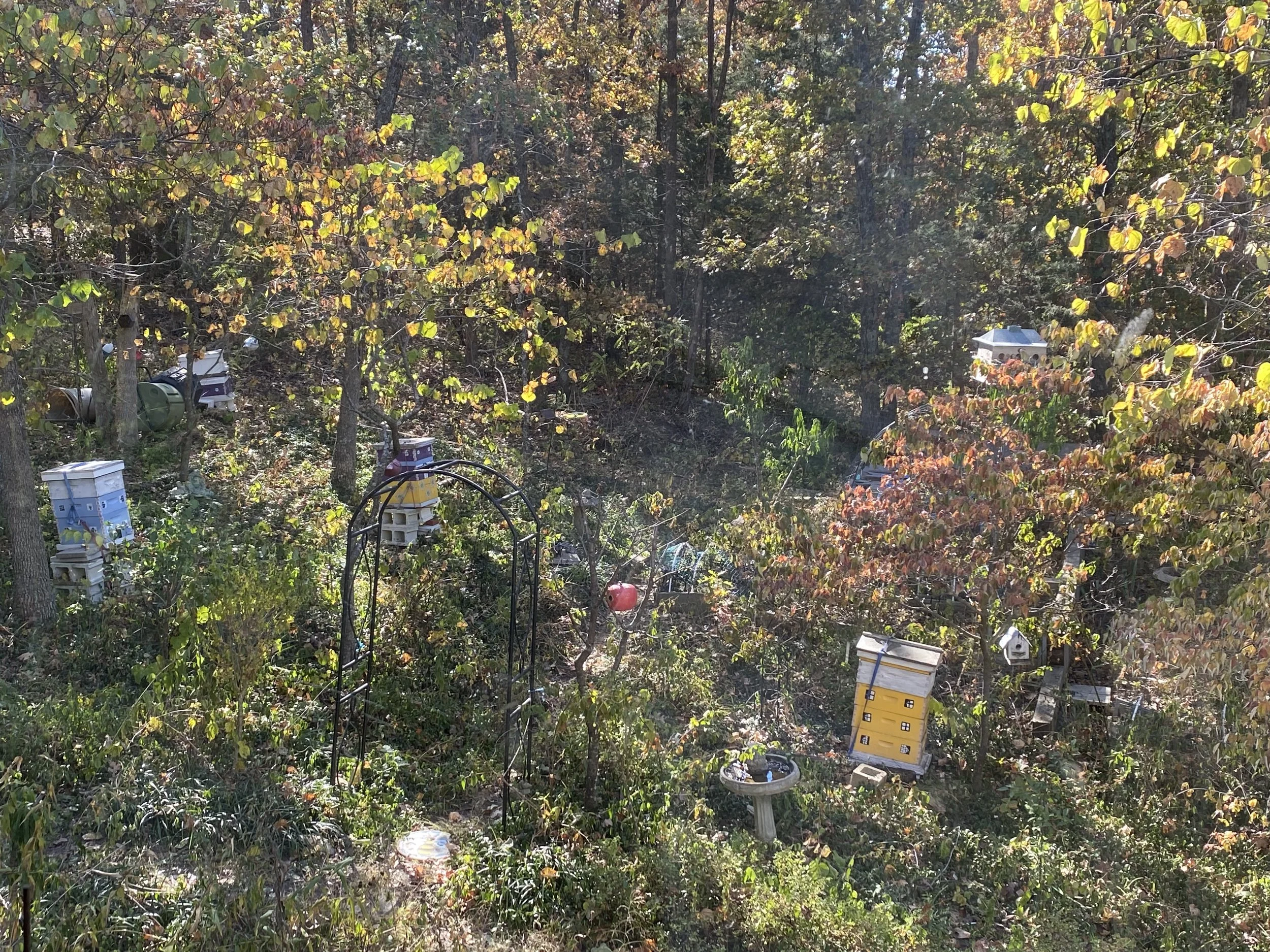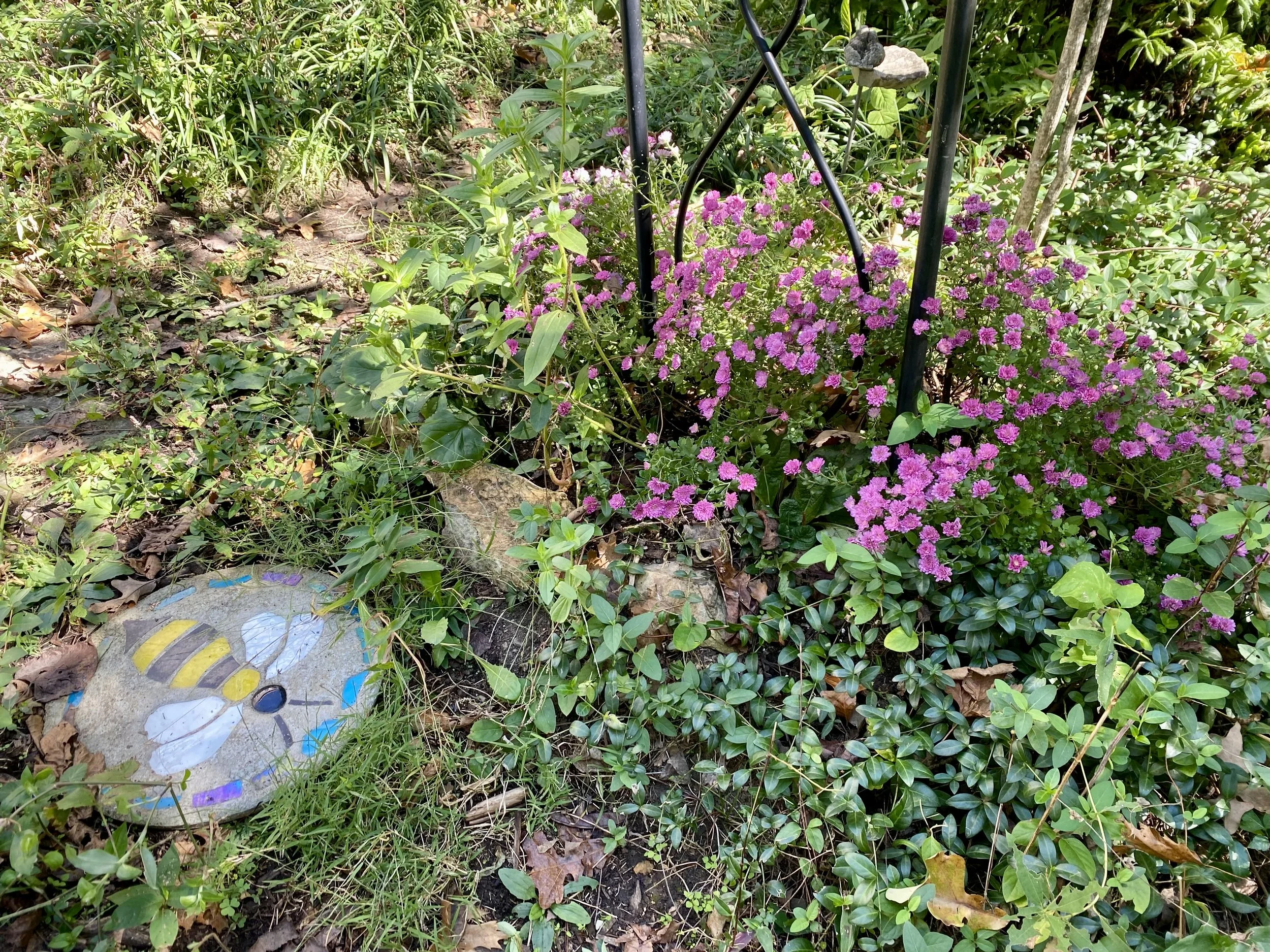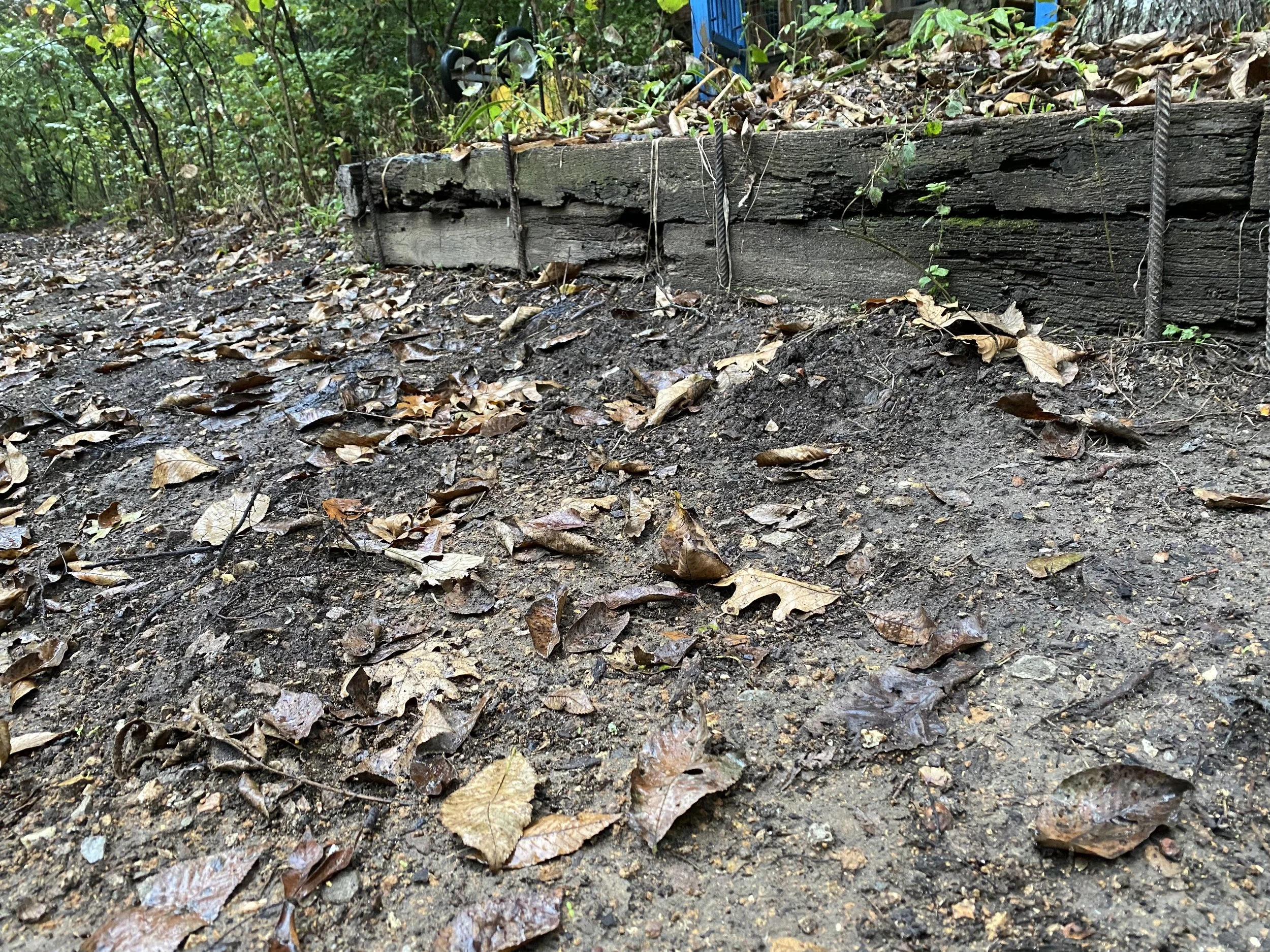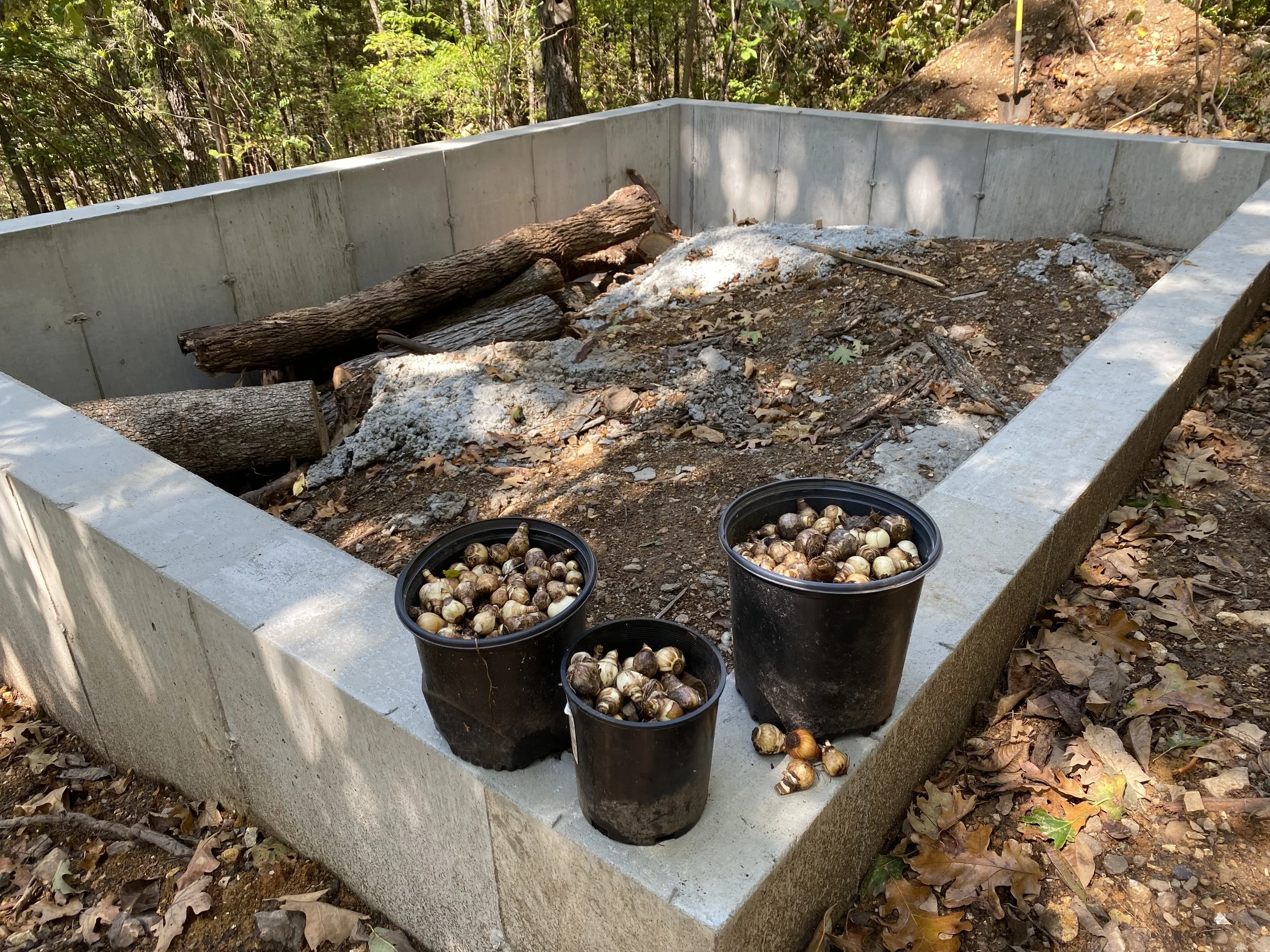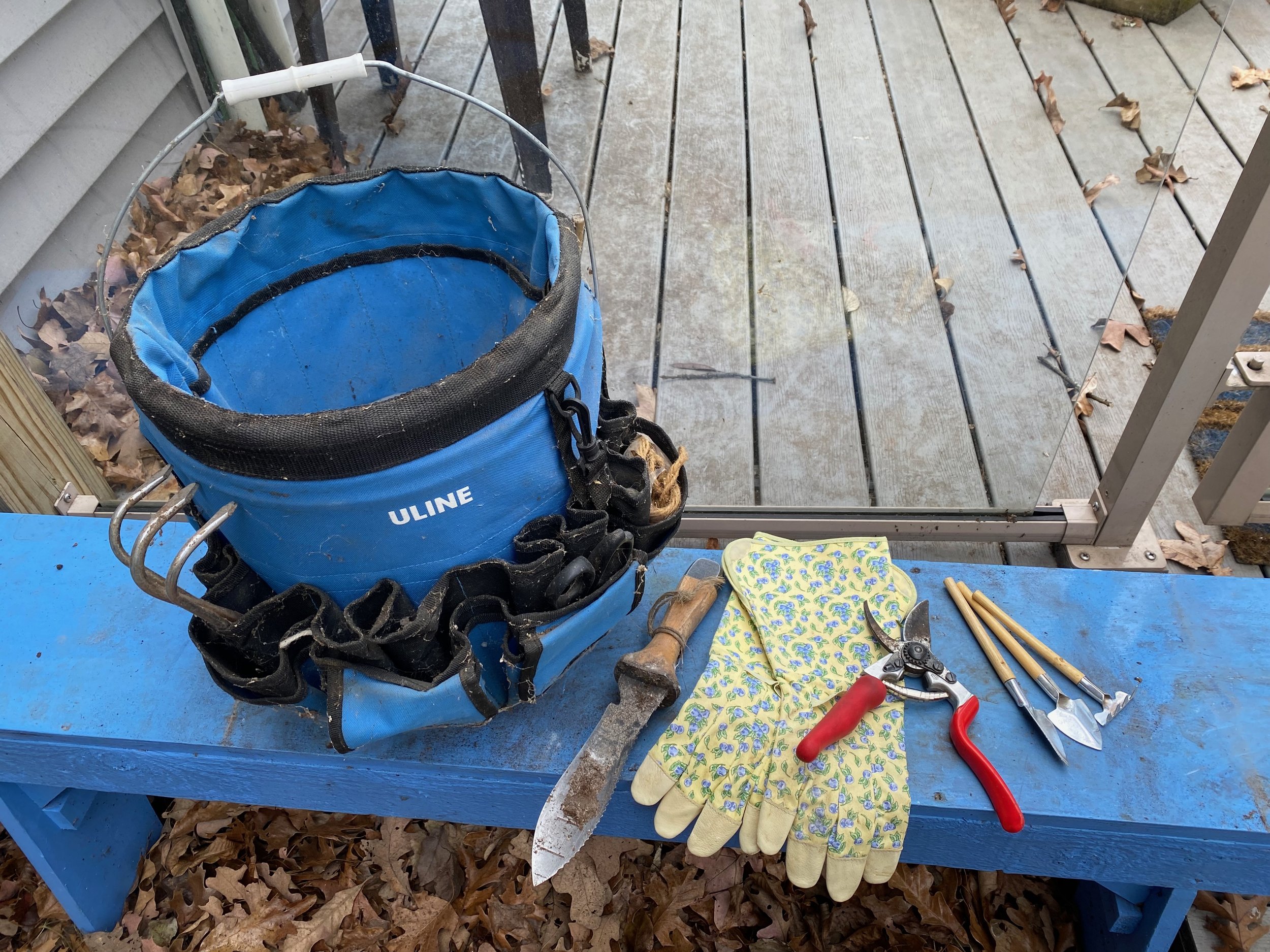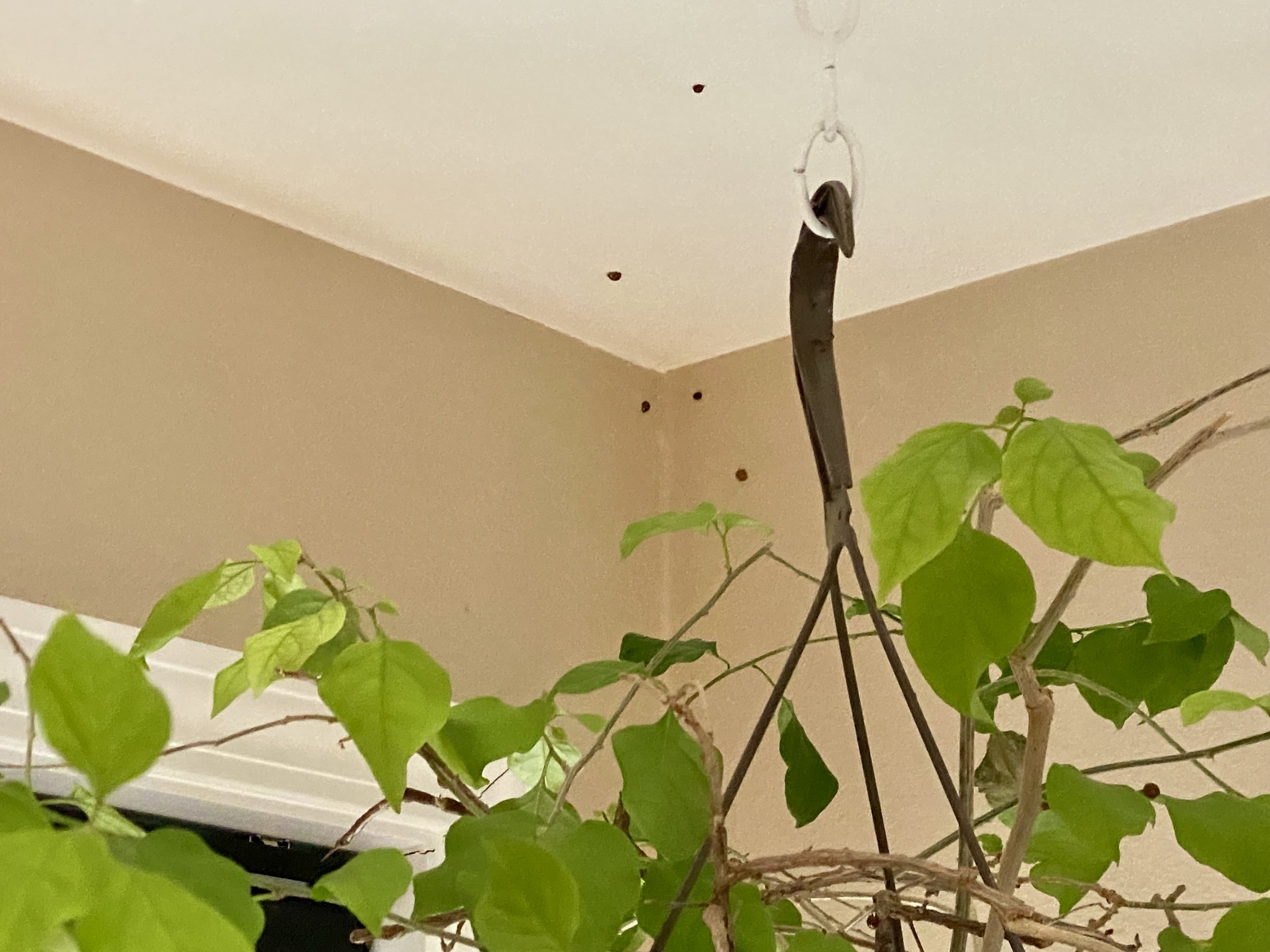Lovely Wild Violets
/Recently-transplanted Missouri wild violets next to last year’s cousins. (Photo by Charlotte Ekker Wiggins)
Lovely Wild Violets
If there is one native Missouri flower that represents spring to me, it’s wild violets, viola sororia or “sister,” because it looks so much like other violets.
I remember “discovering” these native flowers many decades ago in a field behind where I was living. It was in a neighborhood without street lights so it was easy to sit outside and gaze at stars at night, then walk through the field and try to find flowers.
These Missouri natives are called “common violets.” Photo by Charlotte Ekker Wiggins
Common violets can vary in color from a dark, almost navy color to the light lavender here, which reminds me of the lavender applique cat in our Pastel ABCs baby quilt, which I am currently working on as a custom gift.
There are other Missouri native violets living in my garden. Some have moved in on their own, others have been invited in, such as these white violets with purple accents.
These violets look like they can use a drink of water, don’t they? (Photo by Charlotte Ekker Wiggins)
I also have yellow violets in one spot - don’t ask, I don’t remember where so I need to wait for them to bloom - and all white violets, which I planted at the entrance to my house so I can enjoy them every day.
The white violets tend to bloom later than the common violets. (Photo by Charlotte Ekker Wiggins)
These wild violets are not only pretty March-June but the flowers are edible and high in Vitamin C. Since I don’t use toxic chemicals in my garden, I can pick a handful of flowers and add to a salad. Not only is the color pretty but I am adding vitamin C and a little tartness to my meal.
I confess, I also love the look of them on my plate.
Wild violets from non-chemical treated spot in my garden, ready for lunch. (Photo by Charlotte Ekker Wiggins)
These are also welcome resting spots for bees and other pollinators, and their heart-shaped leaves add a nice contrast to other garden greenery. I tuck these in at the front of flower beds wherever I can. don’t know why some people find these plants to be unwelcome, we have to rethink our standard of beauty being a sterile green carpet. These are the plants we should welcome into our gardens!
Charlotte






